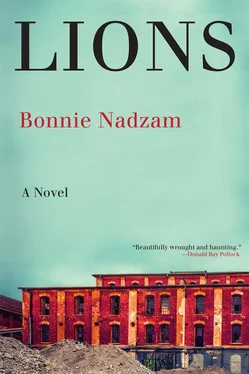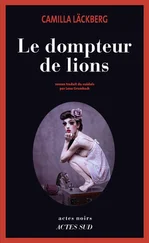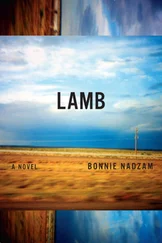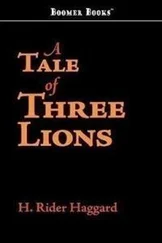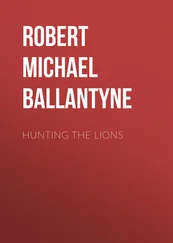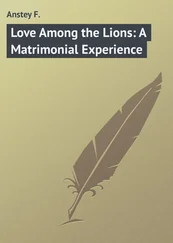No doubt the old doctor believed he was making a helpful statement, but it sounded to Leigh like words from a man who’d never really loved anyone. Even an actuary — a mathematician — could tell you that a grieving person can be distraught, distracted, self-destructive; that there is, in fact, no place in the body where grief might not make its home.
“What about grief that makes you hear things?”
“Like voices?” He looked at her curiously.
“And see things.”
“Visual hallucinations, too?”
She looked out across the green. It was impossibly bright. “Where you imagine whole worlds,” she said.
He frowned. “Imagine, or see them?”
“Where it seems like,” she shrugged, “like you believe in unbelievable stuff.”
“It can be a lot of stress.” He looked up into the blinding blue sky above him. “I lost my wife, for instance.”
“I’m so sorry,” she told him, and she inadvertently glanced at his sliced apples.
“I live with my daughter,” he said. “Every morning, one lunch for my grandson, one for me.”
“That’s a nice thing.”
“That kind of stress can do a lot of harm,” he continued. He was looking at Leigh steadily now. “For a while, for a year even, you maybe really fall apart. I’ve seen that. That’s normal.”
“A year, even?”
“We all have our turn at loss, eventually. Then we understand the need to be patient.”
She stood. “Thank you. I’m so sorry about your wife.”
“Look,” he said. He half stood, as well, and caught his lunch in his lap and sat again. “It’s not my specialty. You should ask someone in the field. Would you like to talk to someone? Would you like a name?”
“I’m from out of town.”
“Well. OK. But do talk to someone in the field.”
She pictured the old ground behind their ruined houses, tiny, lace-winged insects glittering above the feathers of weeds.
In the Walkers’ kitchen Leigh set a cast-iron skillet of steaming eggs and a plate of buttered toast on the wood table by the window. She was afraid to look at Gordon. Afraid of what he’d seen. Afraid of what she might see in him, now.
Yes, everyone agreed, the boy changed that week. In town they remarked on it — his transformation, the striking resemblance to his father when Gordon lost a few pounds, when the sun had drawn lines around his eyes and across his forehead. Even after his first visit, his features seemed sharper. His gaze, sharper. He was sunburnt, and gave Leigh the impression of having visibly aged. He would not meet her eyes, which she took to mean he didn’t want to talk about any of it: where he was, what he’d seen, or what was now required of him. Suddenly she saw herself at the head of Georgianna’s table, in Georgianna’s apron, holding one of Georgianna’s wooden spoons.
“I’ve got to go,” she said. Gordon stared directly at her from across the room.
“You won’t stay and eat?” Georgianna asked.
“Can’t.” She raised a hand in farewell, or hello, and turned to the back door.
Georgianna went on setting the table for three.
When they lowered John Walker into the ground, Gordon took his mother’s hand. The chaplain from the Burnsville funeral home read a psalm and blessed the assembly, and gave thanks for the day. Slowly, one and two at a time, those in attendance turned away toward their cars. Georgianna and Gordon stood fixed at John’s side.
“Gordon,” Leigh said softly, and touched the back of his shirt, but he did not move or speak.
“Boy’s heart is broken,” Dock said, taking Leigh’s arm in his own. His own big blue eyes were red and full of tears. “His mama’s too. Give him time.”
They drove in a line to the Walkers’ yard, which smelled like grilled meat, beer, baked sage, and mosquito repellent. Leigh watched Georgianna turn from the kitchen sink when Gordon walked in barefoot in his blue jeans and take his face with both her hands. The screen door was propped open by an old red brick. May was setting up card tables, and Dock was grilling. It was a long, barrel-shaped grill John and Gordon had welded with expanded steel.
Together, Gordon and Georgianna stepped outside. Faces materialized out of the greenish gold light and looked at them, eyes bright in their heads, lips drawn. There was old Wade Till’s sad, equine head.
“Gas station,” the old man told Gordon. “You going to stay, you going to need to serve the people passing through on their way to somewhere else. Gas station. Coffee shop. Good quick hot food. What kind of food do people like,” he wanted to know, “and what kind of coffee? People your age,” the old man said. “What do they want?”
“I don’t know, Mr. Till. You’d have to ask them.”
“But we don’t have any!” another old man interjected, watery brown eyes, fine purple veins cracked beneath his pale cheeks. “You see the problem we’re up against?”
Emery Sterling’s wide smiling face. His laughter ringing through the solemn, hushed stands of two and three men and women holding paper plates of hamburger and macaroni and pork and beans, his laughter spiking around a murmur of macroeconomic and agribusiness and slow death and bullshit and what to do, how it is, nothing more to say. So many faces in the greenish, tea-colored afternoon, this garish light the preface to a storm that never came. Grainy faces peering out at Gordon as if from old photographs, stepping right out of the print, dead people closing in around him, their eyes stony, their mouths hard, thin lines, their faces so stern. Everyone old, everyone poor, everyone white.
And their hands. Ragged, blue-veined hands. Spotted hands. Hands reaching out to take Gordon’s, and touch his shoulder, and take his elbow, his forearm.
“Here,” one of them said, and led Gordon to the front yard. Across the dirt road, two ruts in the ground made by wagon wheels, made by a 1932 International truck, made again, perhaps, by a 1983 Chevy. The faint lines of dirt tracks disappearing in the distance like a road erasing itself in the weeds.
“I want you to take a look at that,” the old man said. “You see that?”
Gordon nodded.
“You know who comes next to a place like this? If anybody comes next?”
Gordon looked at his face floating in the heat.
“Recreationalists,” he said. “Or nobody. You a recreationalist?”
“No, sir.”
“You a birdwatcher? You think backpackers and birdwatchers need a welder?”
“Not likely, sir.”
“Think nobody needs a welder?”
“Sir?”
“Go to school.”
“Yes, sir.”
“Finance.”
“OK.”
“You got to think of the future.”
“Yes, sir.”
“Eventually you got to start making some money.”
“OK.”
The old man’s bright eyes narrowed and peered at him. “You think I’m wrong?”
The hand of an elderly woman led Gordon to a card table draped with a blue paper tablecloth and piled with sandwiches and warm foil trays of food. She showed Gordon where the plates were.
“You’re as skinny as a snake,” her face said. It wore pink lipstick. It had yellow teeth. “You fill up a plate.”
“Yes, ma’am.”
“That’s good. Put some chicken on there. Macaroni. Good.” She named all of it. Corn. Jell-O salad. Deviled egg. The paper plate was a flat, warm, shimmering blob. “Beans,” she said, “good. You like hot sauce?” She shook a thin pool of neon orange beside his macaroni.
The plate tipped rust-colored bean sauce on his light blue shirt. Little white macaroni bones in the grass. Voices around Gordon saying no incentive. Junk shop. Saying yoked.
Their faces saying sad man.
Saying north country.
Читать дальше
